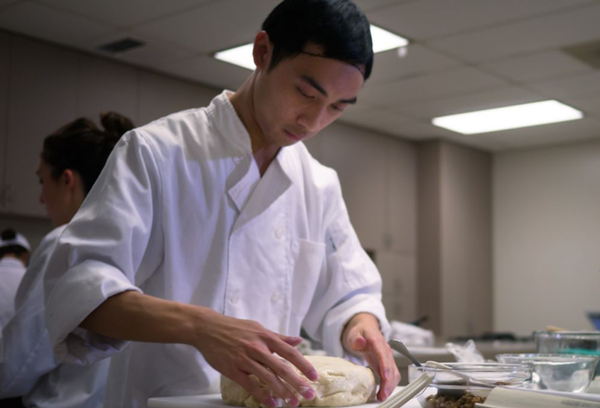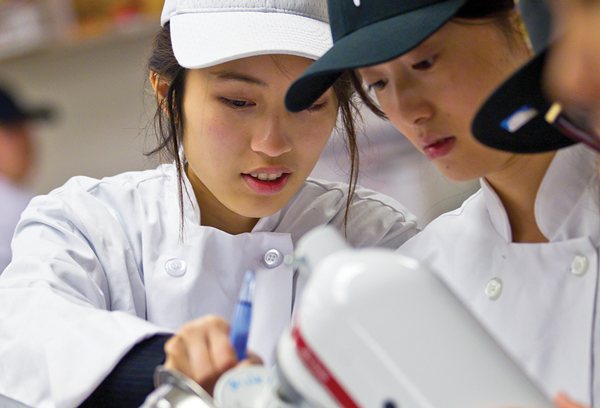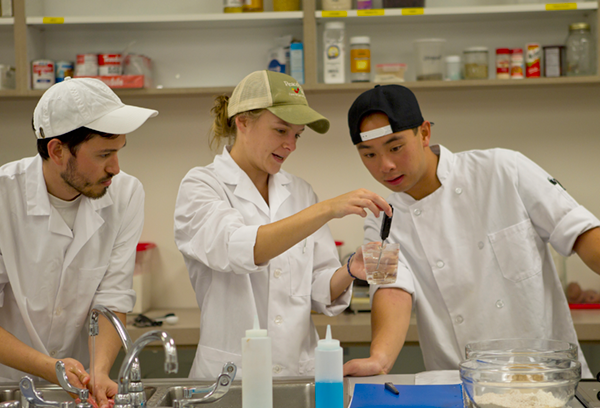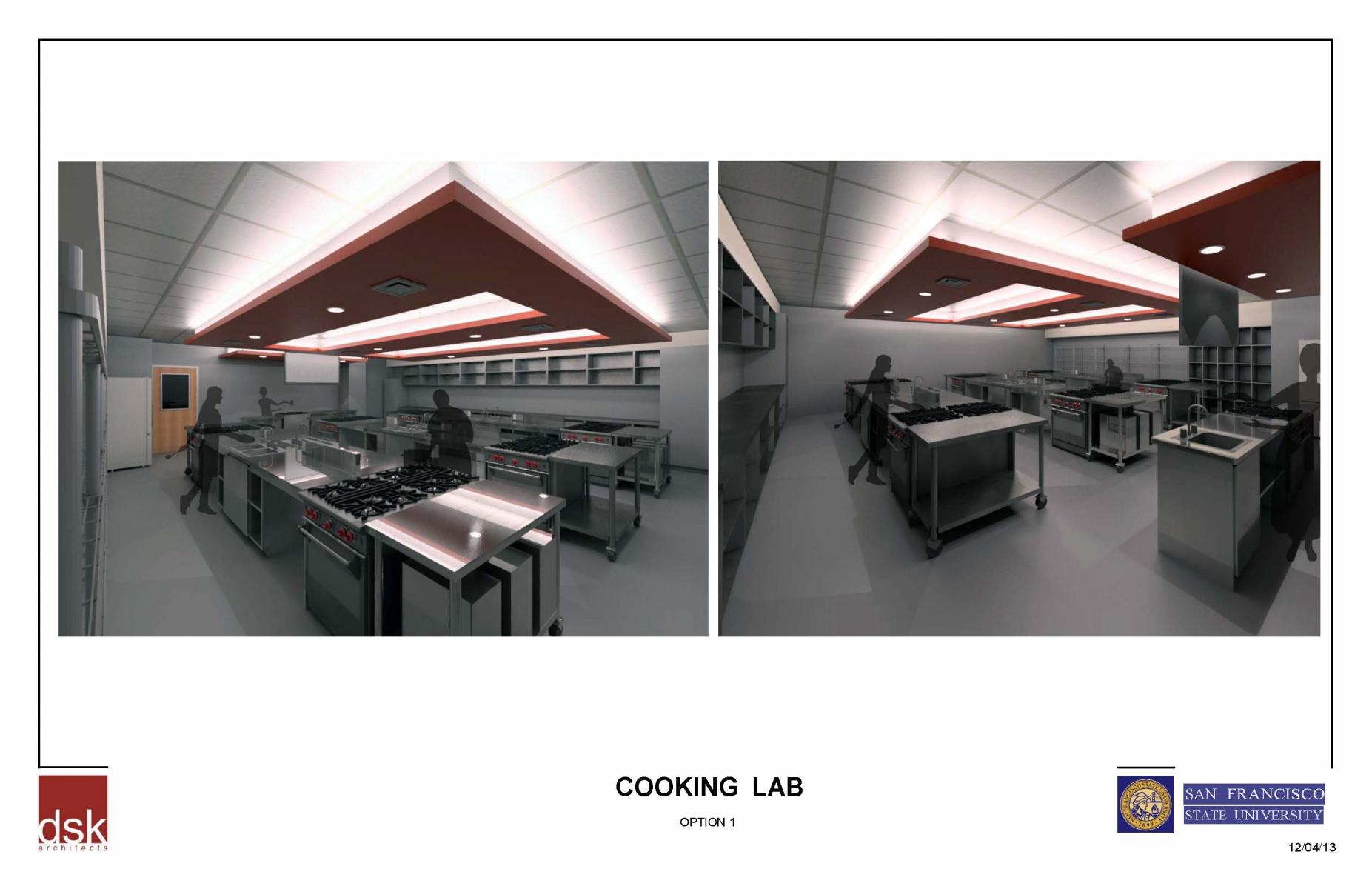


Welcome to the Nutrition programs at San Francisco State University, where we blend science and dedication to create impactful careers in the field of nutrition and dietetics. Our programs are designated as STEM fields, providing unique opportunities for both domestic and international students.
Why Choose Our Programs?
Our mission is to deliver exceptional education and training in foods, nutrition, medical nutrition therapy, and foodservice management. We aim to prepare students for supervised practice, leading to eligibility for the CDR credentialing exam to become registered dietitian nutritionists. Our graduates are equipped to work with culturally diverse populations and meet the evolving nutrition needs of individuals, families, and communities.
Program Concentrations:
We offer two concentrations within the B.S. in Nutrition & Dietetics:
1. Dietetics and Nutrition Science
2. Foods and Community Nutrition
These programs prepare students for professional careers in clinical dietetics, foodservice systems management, and nutrition education across hospitals, industry, community, and government agencies.
Join Us :
Our programs are designed to lead to important and fulfilling careers, making a real difference in the world. We invite you to join us and become part of a community dedicated to excellence in nutrition and dietetics.
International Students:
As a designated STEM program, our Nutrition & Dietetics majors offer international students the chance to apply for STEM Optional Practical Training (OPT). This allows for an extended period of work authorization in the United States, providing valuable hands-on experience in your field of study. Please see link for more details about OPT.
Our Mission:
The mission of the San Francisco State University Didactic Program in Dietetics (DPD) is to provide quality dietetics education and training in the areas of foods, nutrition, medical nutrition therapy and foodservice management. The program’s goals aim to prepare students for supervised practice, ultimately leading to eligibility for the CDR credentialing exam to become registered dietitian nutritionists. Graduates of the program will be prepared to work with culturally diverse populations and to serve the present and future nutrition needs of individuals, families, consumers and the institutions, industries, and businesses serving them.
The FINA Department does not permit multiple concentrations within the Nutrition & Dietetics degree major.
The B.S. in Dietetics is an ACEND-accredited Didactic Program in Dietetics (DPD) and meets the Accreditation Standards of the Accreditation Council for Education in Nutrition and Dietetics through December 2026.
The Accreditation Council for Education in Nutrition and Dietetics of The Academy of Nutrition and Dietetics located in 120 South Riverside Plaza, Suite 2190 Chicago, IL 60606-6995 (800) 877-1600 ext. 5400 ACEND@eatright.org
Dietetics and Nutrition Science Concentration
Foods and Community Nutrition Concentration
Nutrition & Dietetics Program Information
The B.S. in Dietetics is an ACEND-accredited Didactic Program in Dietetics (DPD) and meets the Accreditation Standards of the Accreditation Council for Education in Nutrition and Dietetics.
The Accreditation Council for Education in Nutrition and Dietetics of The Academy of Nutrition and Dietetics located in 120 South Riverside Plaza, Suite 2190 Chicago, IL 60606-6995 (800) 877-1600 ext. 5400 ACEND@eatright.org
The mission of the San Francisco State University Didactic Program in Dietetics (DPD) is to provide quality dietetics education and training in the areas of foods, nutrition, medical nutrition therapy and foodservice management. The program’s goals aim to prepare students for supervised practice, ultimately leading to eligibility for the CDR credentialing exam to become registered dietitian nutritionists. Graduates of the program will be prepared to work with culturally diverse populations and to serve the present and future nutrition needs of individuals, families, consumers and the institutions, industries, and businesses serving them.
Our program offers a mix of in-person (face-to-face) and synchronous online classes to appeal to students with busy schedules who want flexibility. Blended hybrid learning models combine the benefits of in-person and remote modalities.
The estimated costs for distance coursework includes a computing device with internet access such as a desktop or laptop computer or a mobile device such as a smartphone or tablet with speakers and microphone for listening to audio or videos presented in courses and for verbal interaction in class. The cost for these devices varies (for example $200 for a basic laptop) and laptops are available for checkout at https://library.sfsu.edu/laptop-checkout-0.
Connectivity for distance learning can cost as little as $30/month using the federal Affordable Connectivity Program. Please see university resources for internet access https://instructionalcontinuity.sfsu.edu/internet-access-resources. The SF State wireless (Wi-Fi) network provides free encrypted connectivity for current faculty, staff, students, and community members while visiting the campus.
The program has two goals.
Goal 1: Graduates will be prepared for supervised practice programs.
- Objective 1.1: At least 80 percent of program students complete program/degree requirements within six years (150% of the program length).
- Objective 1.2: At least 60 percent of program graduates apply for admission to a supervised practice program prior to or within 12 months of graduation.
- Objective 1.3: At least 50 percent of program graduates are admitted to a supervised practice program within 12 months of graduation.
- Objective 1.4: The program’s one-year pass rate (graduates who pass the registration exam within one year of first attempt) on the CDR credentialing exam for dietitian nutritionists is at least 80%.
- Objective 1.5: At least 80% of supervised practice program directors surveyed will indicate they are satisfied/very satisfied regarding interns’ skills related to job functions.
- Objective 1.6: At least 80% of DPD graduates who respond to the survey will indicate that they were satisfied with the knowledge they gained on the ACEND Core Knowledge Requirements.
Goal 2: Graduates will demonstrate an understanding of cultural diversity and the importance of cultural competence.
- Objective 2.1: At least 80% of the DPD seniors surveyed will indicate satisfactory scores with respect to “understanding diversity concepts through the development and execution of a final semester teaching module project (NUTR 551 Nutrition Education and Communication).”
- Objective 2.2: At least 80% of supervised practice program directors surveyed will indicate they are satisfied/very satisfied regarding interns’ cultural competence.
Program outcomes are available upon request.
Effective January 1, 2024, the Commission on Dietetic Registration (CDR) will require a minimum of a master’s degree to be eligible to take the credentialing exam to become a registered dietitian nutritionist (RDN). In addition, CDR requires that individuals complete coursework and supervised practice in program(s) accredited by the Accreditation Council for Education in Nutrition and Dietetics (ACEND). In most states, graduates also must obtain licensure or certification to practice. Graduates who successfully complete the ACEND-accredited Didactic Program in Dietetics at San Francisco State University are eligible to apply to an ACEND-accredited supervised practice program.
The Registered Dietitian is the food and nutrition expert. To become a Registered Dietitian the following steps must be taken:
- Complete Didactic Program in Dietetics (DPD) coursework;
- Acquire supervised dietetic practice experience by successfully completing an accredited Dietetic Internship (DI);
- Pass the Registration Examination for Dietitians.
To apply to a dietetic internship, individuals must complete at least a bachelor's degree and ACEND-accredited coursework requirements (Didactic Program in Dietetics). Currently all DIs must provide at least 1200 hours of supervised practice. This is usually completed in 8-24 months depending on the availability of a part-time schedule or requirement of graduate credit. Individuals completing the program who are verified by the program director are eligible to write the CDR registration examination for dietitians.
Appointments to DIs are awarded on a competitive basis and most use a national computer matching process. Programs not participating in computer matching accept applications only from individuals employed by the sponsoring organization. Prospective applicants must contact program directors for current information, including application deadline dates. More information about the application, tuition and financial aid can be obtained from the program.
Competition for Dietetic Internships (DI) is extremely fierce, so if you are an existing student or are considering applying to a dietetics program to become a Registered Dietitian, try to get as much information as possible to improve your chances at getting the internship experiences required to sit for the RD exam.
Make sure that your GPA is above the minimum required by the internship, the higher the better. Although GPA is not the only factor considered by directors, it is one of the most highly weighted. A GPA of 3.0 (B) is often listed as the minimum considered by most DI programs; however, remember that this is only a minimum. So, if given a choice between a 3.0 or a 3.8 GPA, chances are that the applicant with 3.8 GPA will be selected.
Effective January 1, 2024, the Commission on Dietetic Registration (CDR) will require a minimum of a master’s degree to be eligible to take the credentialing exam to become a registered dietitian nutritionist (RDN). In addition, CDR requires that individuals complete coursework and supervised practice in program(s) accredited by the Accreditation Council for Education in Nutrition and Dietetics (ACEND). In most states, graduates also must obtain licensure or certification to practice. Graduates who successfully complete the ACEND-accredited Didactic Program in Dietetics at San Francisco State University are eligible to apply to an ACEND-accredited supervised practice program.
The San Francisco State University Didactic Program in Dietetics provides general university information, specific information regarding the program and steps required by the Academy of Nutrition and Dietetics to become a Registered Dietitian or Dietetic Technician, Registered.
As a post-bachelor's student, you can complete the B.S. in Dietetics & Nutrition Science without additional university requirements; only the 70 units of the DPD program are required. Upon completion of the 70 units, the degree will be awarded. Please review SF State Division of Graduate Studies website for university admissions information. The deadline for Fall admission is March 1 and for Spring, November 1.
Note: The classes listed below are in high demand at SF State and many are prerequisites for upper division nutrition courses. As such, we require that all post-bachelor's and transfer applicants complete General Chemistry, Organic Chemistry, Microbiology, Physiology, Anatomy, Statistics and Psychology prior to applying. Please plan accordingly.
If you are not admitted or enrolled at SFSU and you want a formal transcript evaluation, the DPD director will need copies of your transcripts. The fee for a transcript evaluation is $50.
If you graduated from a university outside the United States, your transcripts must be evaluated by an outside agency. The Academy of Nutrition and Dietetics (AND) website lists companies performing this service. This evaluation must be included with all requests for transcript reviews.
The B.S. in NUTR - Dietetics & Nutrition Science or NUTR - Foods & Community Nutrition invites current students to submit a change of major request online by completing the following steps:
- Go to SF State’s home page and select the Login link to log into SF State Gateway/MySFSU.
- Log in with your SF State ID or E-mail and SF State Password.
- Your SF State Gateway home page displays. Click the Schedule / Classes link under the Student section and click to Student Center.
- The SF State Student Center displays. Under the other academics pull down section, select Change Major from the drop-down menu. Click the Go button.
- The Change of Major/Minor page appears.
- To proceed, click the Next button at page bottom.
- A new page displays your current major and click on the change of major button.
- Requested College - Click 38 CHSS.
- Requested Major – Click Either
- Dietetics: Diet & NutrSci - B.S.
- Dietetics: Food & ComNutr – B.S.
- Click Submit Button.
- You will receive a welcome email from our Department with an email address of your new major advisor – Please note that you must check Gateway in order to access this email. Please send your advisor an email to set up a time to discuss your academic advising plan.
- After this meeting, you will be added to the NUTR major.
- A confirmation of your request will be sent to your SF State email account.
The documents on this website/webpage might not be fully accessible to persons with disabilities. We are working to fix these accessibility barriers. If you experience difficulty in accessing this content, please contact fina@sfsu.edu and we will provide you with accessible alternatives.
